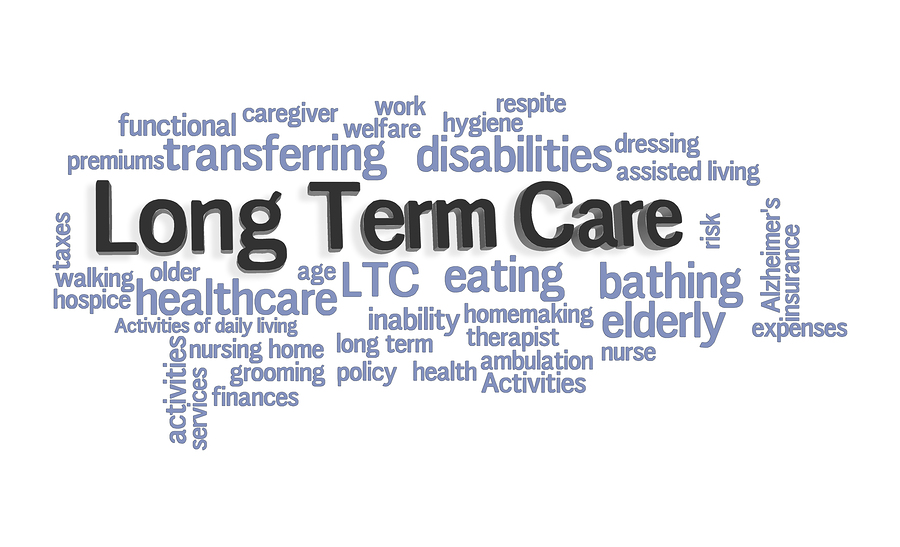The Medicaid program's long-term care advantages are both the component that is used the most and the one that is understood the least. Even while Medicaid is not the same as long-term care policy, many people who want to depend on it are under the impression that it is. As a consequence, they are deprived of the medical attention they so desperately need. Before you "intend" to use Medicaid to pay for your long-term service, you should be aware of how Medicaid varies from long-term care coverage.
Medicaid
Medicaid is a multi-pronged initiative aimed at helping folks who can't otherwise afford health care and other essentials get the care they need. With little savings or retirement money, Medicaid long-term healthcare is a significant advantage for folks who need assistance beyond what their family can supply. While some people choose not to get long-term care coverage and instead depend on Medicaid, there are others who do so on purpose. Helping elderly clients declare bankruptcy so they may get Medicaid perks is a specialized area of law. Medicaid, however, does not give the types of options, perks, and coverage alternatives that long-term care plans do.
Advantages &'' Requirements of Medicaid
In contrast to the federal Medicare plan, Medicaid is entirely state-run, resulting in a wide range of long-term care insurance options. Medicaid typically provides nursing facility care and assistance for those who qualify in all states. When it becomes impossible for you to carry out even a few of the most basic daily tasks without help, you may need custodial care.
- Eating
- Taking a bath
- Getting dressed
- Toileting
- Movement
In order to qualify for Medicaid, you must normally be unable to complete at least three of these five ADLs without assistance, similar to the requirements for long-term care insurance coverage. If you fulfill Medicaid's ADL and income/asset criteria, you may utilize Medicaid to fund nursing facility care.
Long-Term Care Insurance

Elderly or severely ill people who are aged 65 or older or have a chronic ailment that requires daily medical attention may be eligible for long-term healthcare coverage. For those who can manage to foot the bill for it, private coverage is an alternative that gives more possibilities than Medicaid, and it is more flexible than Medicaid. No income or wealth constraints since it's paid for.
Key Differences
Medicaid provides a few benefits that aren't available in most long-term care insurance packages. The contrasts between these two methods of supporting long-term care demands are summarized in the accompanying graphic.
Coverage/Benefit | Medicaid | Long-Term Care Insurance |
Nursing home stays | Generally | Generally |
Coverage begins on the first day of care | Generally | It varies as per policies |
Long-term care facility insurance as long as it's necessary | Generally | Barely: too expensive |
Coverage in almost any nursing home | Medicaid is generally not accepted | Generally |
An in-home care program | Not in most states | Available alternatives |
Adult daycare program | Barely | Available alternatives |
Stays At a Nursing Home
Nursing home care is covered by long-term care coverage &'' Medicaid. Care in nursing homes is not the only form of care covered by certain long-term care insurance. In many states, Medicaid only pays for nursing home stays for people who need non-skilled care. It's important to note that even if in-home care is less costly and frequently what you actually need and desire if you're protected by Medicaid, you may not always be able to do so. Long-term care protection may be a huge benefit when compared to Medicaid's rigidity.
Medicaid is not accepted by all nursing facilities. Medicaid patients aren't required to be accepted if the institution doesn't accept certain sources of government or state money. As a result, you may be unable to use the service of your preference. Visiting museums, shopping malls, and other non-medical attractions are likewise excluded from Medicaid coverage. Your spouse may not be allowed to live with you in a private room. Some facilities have a "Medicaid section" or floor.
Medicaid does cover your facility admission as long as you require treatment. A higher benefit level is required if you want long-term care protection to cover all of your expenses during your life. There is no waiting time for Medicaid and long-term care policy, but there is for long-term care insurance.
In-Home Health Services
In-home care is a popular alternative to traditional long-term care facilities. There is a lot of custodial care that may be provided in the comfort of one's own home. Long-term care coverage is the best option if both you and your partner want to remain in your house as long as feasible. Why? For the simple reason that it gives you the freedom to choose the level of care you want. Be wary of utilizing Medicaid for any kind of care if you own your own house. According to the laws of your state, if you get the care and your partner stays in the house, your descendants may be required to pay the expenses of your treatment out of the earnings of the sale of the property when the partner dies who lived in that house.
Elderly Daycare

Family members of elderly people often opt to give the majority of the care they need but are unable to remain at home during the day owing to employment commitments. An answer to this dilemma may be found in adult day care. Churches &'' community halls often offer this kind of community-based healthcare. Pick-up and drop-off times are simple: a few hours before and after their shifts. Adult daycare may also provide a break for carers who need a break while caring for a loved one full time. Most Medicaid programs do not fund this kind of treatment, but long-term care coverage does.
The Bottom Line
Before placing your hope on Medicaid to cover your long-term care expenses, give it some serious thought. As usual, hasty judgments may backfire on you, particularly when it comes to your health. Though you anticipate something, it may not be what you receive.
watch next


